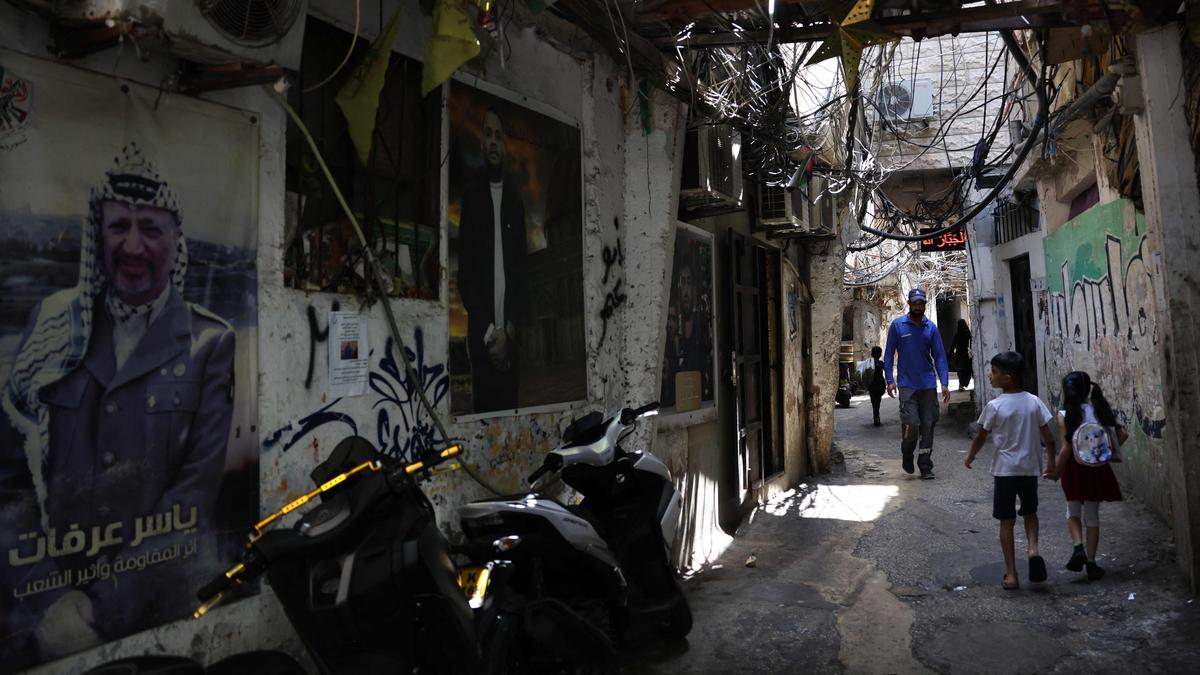
The ‘Oslo trap’, a number of wars and other challenges in the Israel-Palestine conflict Premium
The Hindu
A powerful narrative of tragedy, loss, and resilience in the Israeli-Palestinian conflict, revealing the harsh realities of occupation.
It was a wet, grey, and extremely windy February morning in 2012, Nathan Thrall writes in A Day in the Life of Abed Salama: Anatomy of a Jerusalem Tragedy. On that fateful day, a trailer truck flipped on an old bus carrying Palestinian children on a highway in the Israeli-controlled Area C of the West Bank outside Jerusalem. The children, from a private kindergarten, were on the way to a local play centre. A few minutes after the accident, Abed got a call from his nephew. “Did Milad go to the picnic today? There was an accident with a school bus near Jaba.”
Milad Salama is Abed’s five-and-a-half-year-old son. Earlier in the day, Milad’s mother, Haifa, had helped her boy into his school uniform: “grey pants, a white-collared shirt and a grey sweater”. After the crash, Milad’s school bus rolled over on the road, doors against the ground. The fire soon engulfed the bus. Six children and a teacher were killed and many more were injured.
Thrall, a Jewish American journalist who lives in Jerusalem, follows Abed’s frantic efforts to trace his son. And through the story of the accident and that of Abed, Thrall writes about the day to day life of Palestinians under the many yokes of the Israeli occupation in a non-sentimental yet powerful prose. The bus is “crackling with flames,” writes Thrall. A crowd had gathered around the bus and was screaming and shouting. The site of the accident was a few minutes drive away from a Jewish settlement and seconds from the Jaba checkpoint. It would take time for rescue workers to reach the site, navigating the morning traffic and Israeli checkpoints. An Israeli ambulance or soldiers could have reached the site in minutes. But about half an hour after the crash, Thrall writes, “not a single firefighter, police officer or soldier had come.”
Thrall originally wrote about the accident in March 2021 in ‘The New York Review of Books’ in a 20,000-word essay. Abed Salama’s quest to find his son “lays bare the reality of Palestinian life under Israeli rule,” he wrote in the article. Later, he expanded the article into a book, with more details on the experiences of those whose children were there on the bus. The book won the Pulitzer Prize for non-fiction this year.
Thrall is a familiar name for Israel-Palestine watchers. A former research director at the International Crisis Group, Thrall’s previous book, The Only Language They Understand, is one of the most authoritative works on the Israel-Palestine conflict of recent times. The popular narrative about the Israel-Palestine conflict is that “terrorism” on the Palestinian side has been a major stumbling block for a two state solution. Thrall details the concessions the Palestinians made in The Only Language: “In the 1948 war, Israel captured 23% more territories than what even the UN had proposed for ‘an independent Jewish nation’.” When the PLO (Palestine Liberation Organization) was formed, its goal was to “liberate” all of Palestine. Later, the PLO settled for an independent Palestinian nation within the 1967 border — which is only 22% of the historical Palestine.
When the Oslo Accords were signed and a provisional government was formed in parts of the West Bank and Gaza, the Palestinian leadership excluded Jerusalem from the process, allowing Israel to continue the occupation of East Jerusalem. But even with these compromises, the Palestinians failed to move towards sovereignty. Almost a quarter century after the Oslo Accords, the Palestinian Authority controls only parts of a restive West Bank, with Israel building more settlements in the occupied land. Gaza has been blockaded from all sides. That’s why Thrall calls the Oslo process the “Oslo trap.” It was against this background the October 7, 2023 attack by Hamas in Israel unfolded.
For the Israeli government, Hamas represents Palestinian terrorism, and the government of Prime Minister Benjamin Netanyahu has vowed to “crush” Hamas. Israel has killed over 35,000 Palestinians in Gaza since October 7 and wounded tens of thousands more. Israel claims that it is a victim of Hamas terrorism. What Israel doesn’t want to talk about is its brutal, illegal occupation of the Palestinian territories. While Hamas’s attack on Israeli civilians should be condemned, any understanding of the Israel-Palestine conflict without the historical context would not be complete.

The girl, who was admitted to Aster CMI Hospital with alarming breathlessness and significant pallor, was diagnosed with Wegener’s Granulomatosis (now known as Granulomatosis with Polyangiitis or GPA), a rare autoimmune condition that causes spontaneous bleeding in the lungs, leading to acute respiratory failure.

ACB files case against IPS officer N. Sanjay in Andhra Pradesh. The official is accused of manipulating the tender processes for awarding contract for development and maintenance of AGNI-NOC portal, and conducting awareness meetings for SC/STs. It is alleged that the total value of properties stolen, or involved in the case is estimated at ₹1,75,86,600.









